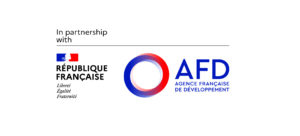Elodie Vitalis, Group representative in Fiji, Agence Française de Développement
|

|
The communities which struggle most to deal with the impact of climate change also tend to suffer from unequal access to financial services. Could both issues be tackled through one approach?
The answer is yes, and it’s called Inclusive Green Finance.
|
Inclusive Green Finance works on the principle that access to financial services helps vulnerable communities build resilience to the impact of storms, floods, droughts, rising sea levels and other climate change-related disasters: for example, by allowing people to save, make payments, receive emergency support, or access credit.
Access to finance and climate resilience therefore go hand in hand. As countries shift to low-carbon economies, this transition must involve tackling existing inequalities in access to financial services. Equally, national financial inclusion strategies will need a strong green finance component, to provide better support to at-risk populations.
Over the last five years, AFD has been supporting AFI and its members in Africa and in the Arab region. For this new phase of the partnership, AFD will support the AFI network to develop and implement Inclusive Green Finance. We have seen that by redirecting financial flows towards green investments, national economies prosper, shared prosperity is created, and vulnerable populations are supported. Inclusive green finance has strong gender and social justice components, and is accelerating progress on both.
Today, Inclusive Green Finance is taking off around the world.
In the Pacific, a region on the frontline of the climate crisis, AFD is financing a six million euro project, implemented by the Global Green Growth Institute, to support the central banks of Papua New Guinea, Fiji, Vanuatu, Tonga, Samoa and the Solomon Islands to develop and implement Inclusive Green Finance policy.
In Jamaica, the Dominican Republic and the Eastern Caribbean, another region strongly impacted by climate change, AFD is supporting central banks to integrate climate-related financial risks into their activity.
In Tunisia, AFD and the World Bank are working to protect the country’s population against the financial fallout of disasters and climate-related events, through setting up targeted insurance mechanisms.
In every region, we are seeing how financial systems can play a key role in countering the effects of climate change, and how transforming financial systems makes it possible to mobilize funds towards sustainable and green investments.
The need to protect vulnerable communities from extreme climate and weather impacts will not go away soon. Fortunately, we know what works. AFD looks forward to continue working with the members of the AFI network to maximize the potential of Inclusive Green Finance.


 About
About
 Online
Online
 Data
Data




















